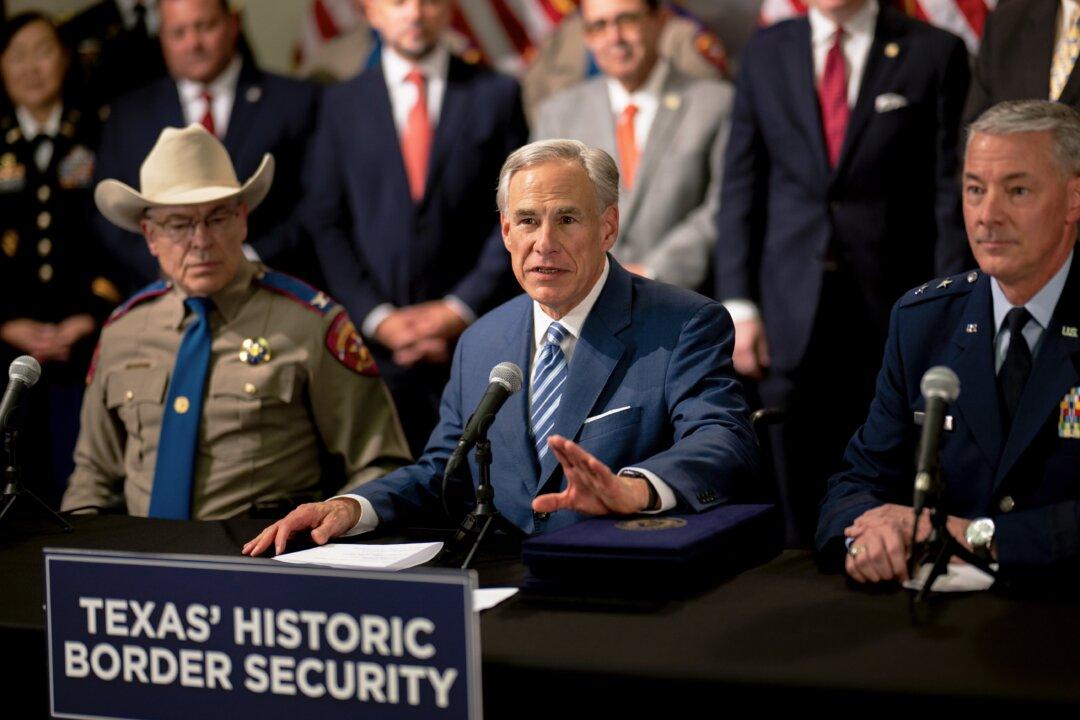Texas Gov. Greg Abbott on Thursday announced a new strategy to deter illegal immigrants from crossing the southern border involving the deployment of a water-based barrier in the Rio Grande.
During a press conference, Abbott shared his plans to deploy a floating barrier that stretches 1,000 feet in length. He described it as a man-made wall floating in the water, intended to be an extra layer to hinder immigrants from swimming or wading across the Rio Grande.





